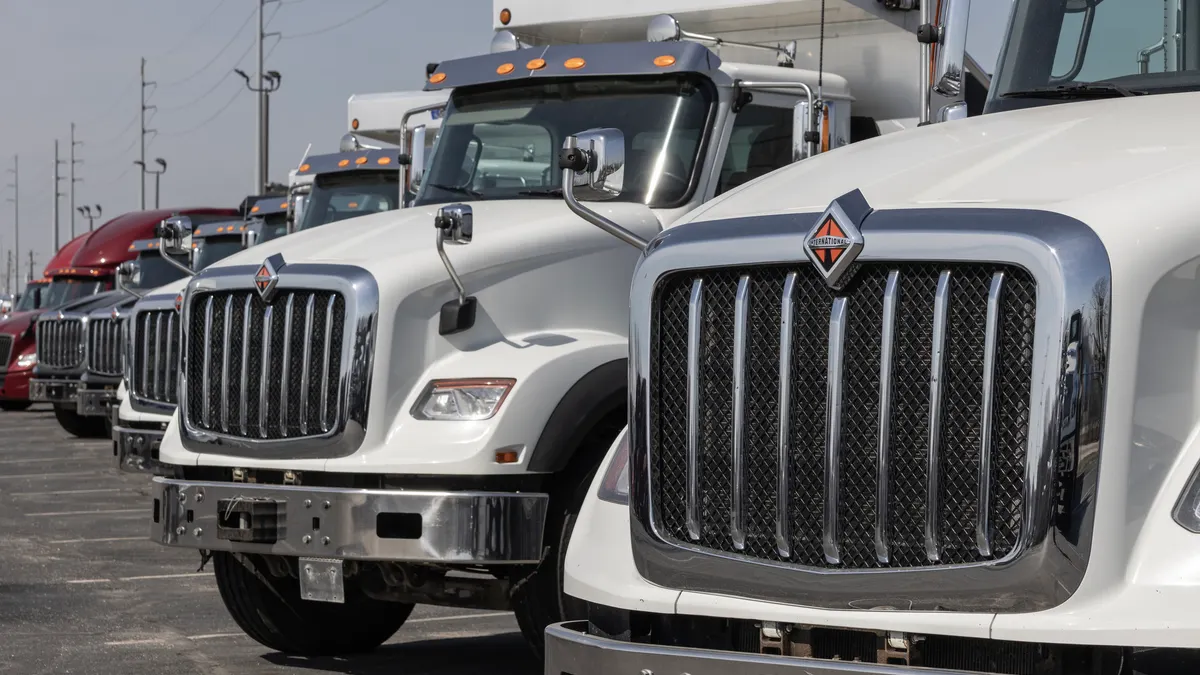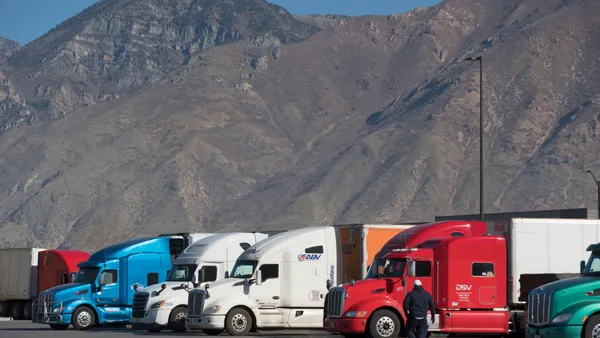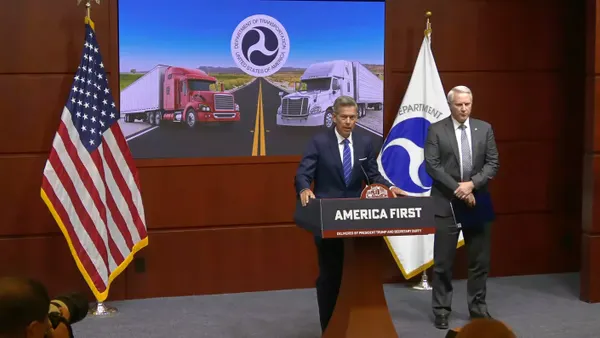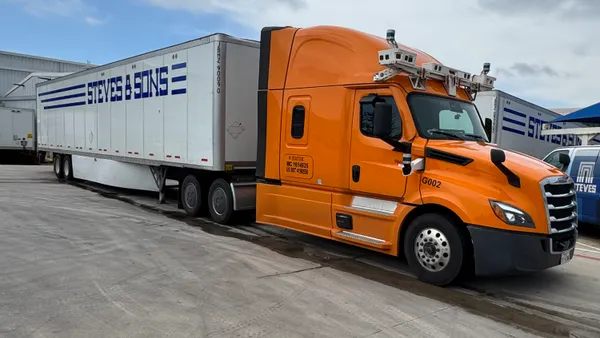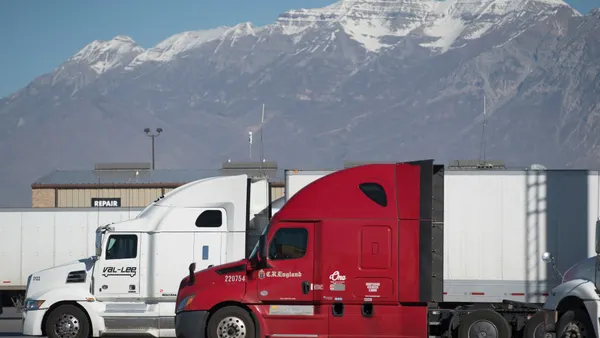Dive Brief:
- Daimler Truck North America, International Motors, Paccar and Volvo Group North America sued the California Air Resources Board in federal court Monday, seeking to invalidate an emissions reduction deal from 2023, the Clean Truck Partnership.
- The agreement, signed by the four companies and others, called for OEMs to move away from traditional trucks and toward zero-emission vehicles. But Congress under the Trump administration has since rolled back Environmental Protection Agency policy that previously gave the state leeway in its environmental goals.
- “Plaintiffs are caught in the crossfire: California demands that OEMs follow preempted laws; the United States maintains such laws are illegal and orders OEMs to disregard them,” the lawsuit said. “Accordingly, Plaintiff OEMs file this lawsuit to clarify their legal obligations under federal and state law and to enjoin California from enforcing standards preempted by federal law.”
Dive Insight:
California and the federal government are clashing over who has authority to set emissions standards for manufacturers.
California's Clean Truck Partnership, which the plaintiffs signed onto in 2023, called for phasing out legacy engine production from 2024-2026 with more stringent restrictions each year, while giving truck manufacturers some flexibility on how to do so.
Despite that deal between California and OEMs, Congress rolled back EPA policy through a joint resolution in June. But according to the suit, California has since threatened the OEMs with civil sanctions if state standards are unmet. Meanwhile, the federal Justice Department has issued cease and desist letters to CARB stating that California’s “enforcement of its standards is contrary to federal law.”
“The OEMs are in an impossible position,” the lawsuit says, adding that California is mandating the companies to follow CARB’s standards or be excluded from the California market, subject to civil penalties and excluded from state purchasing and incentive programs.
A provision in the deal said that the businesses commit to meet those regulations, “irrespective of the outcome of any litigation challenging the waivers or authorizations for those regulations or of CARB’s overall authority to implement those regulations.”
At the same time, California is challenging the congressional policy rollback in court. The state eventually wants 100% ZEV sales of heavy-duty trucks by 2045 wherever possible.
The truck manufacturers’ lawsuit, which also names CARB Executive Officer Steven Cliff and Gov. Gavin Newsom as defendants, further alleged that the deal was meant to “harmonize compliance with state and federal law.”
The suit seeks relief by having a court declare federal precedence over the rules and asks for several declaratory judgments, including that the Clean Truck Partnership is unconstitutional and also violates the federal Clean Air Act based on the federal supremacy clause.
"Against this backdrop, Plaintiff OEMs urgently need clarity regarding the law and emission standards that apply to its vehicles and engines for model year 2026," the suit said, adding that the companies "must know which vehicles they are authorized to sell, and where, well in advance of the start of a model year on January 1."



